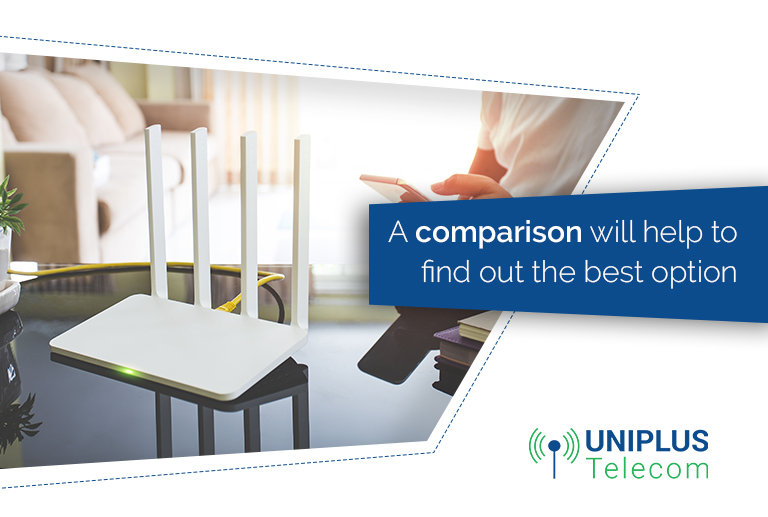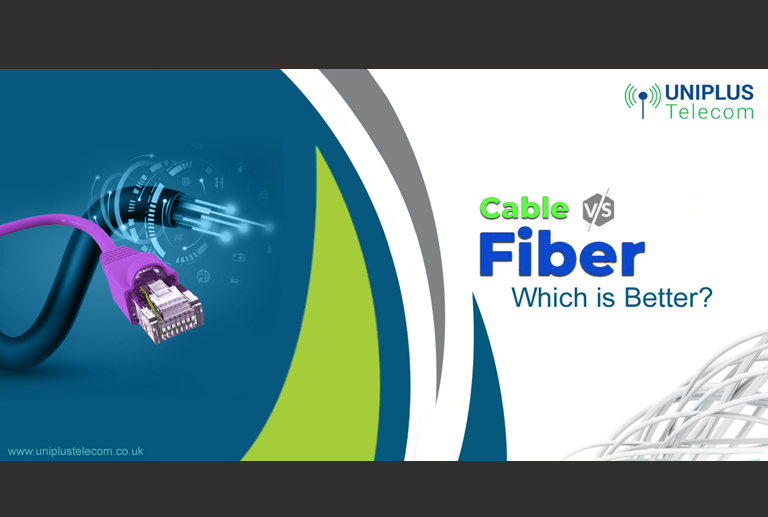This is the digital age where almost everything is managed over the internet and accessing the World Wide Web for every big or small thing has become the norm. In such a situation, having a proper internet connection is crucial for every organisation, including your business. Additionally, to make the most of the available opportunities and have some advantage over the competition, you need to have access to high-speed internet connection. There are multiple options available, including business fibre broadband, traditional copper, and wireless internet connection.
Understanding The Premise – Choosing the best of the lot is required to make sure that your business can enjoy an edge over the competition. One of the most effective ways of choosing the best of the lot is creating a comparison amongst the available options. This way, you will get to know about the perks and shortcomings of individual options which will make choosing the best of the lot simpler than before. There are three main kinds of internet connections available and they are:
- Copper
- Fibre optics
- Wireless
It is now time to know about the advantages and disadvantages of these connections.
Traditional Copper – As the name suggests, this is the traditional internet connection available in the market and it is also one of the oldest modes for such connections. One of the biggest advantages of copper-based broadband is its point of dominance. Since, the advent of the telephone connection (the landline version and not the mobile one), copper cable has become integral to the wiring of a structure. This means, most of the industrial and residential buildings already have copper cable wiring which makes installing and accessing the internet simpler and less expensive.
As for disadvantages, there are multiple of them regarding copper cable broadband including data bottleneck, slower speed, unstable connection, easily disrupted, weak security, limited bandwidth, and such. All these shortcomings may not seem important enough separately, but when they come together, things can get positively complicated. Therefore, for a business interested to do better and have the edge over the available competition, depending on an internet connection that can get disrupted easily and end up becoming the leak for sensitive information, is not at all wise. Due to these problems, copper cable broadband connection is losing its dominance over the market, especially the industrial one, fast.
Fibre Optics – Due to its fast speed and better security, fibre broadband connection is the perfect solution for businesses looking for a reliable internet connection. Along with bringing better speed and security, fibre-based internet connection brings a number of other advantages on the table as well. This fast internet connection gets its speed from light because the fibre optics strands are made of glass and they use light for the transmission purpose. So, when you are using this broadband option, you are depending on the speed of light or more precisely the photons. Hence, the speed is bound to be more than the copper cable option.
Unlike the other options, it is hard to hack into a fibre broadband connection. To achieve the hack, one needs to cut the fibre strands which will disrupt the connection altogether, making the attempt redundant in the first place. There is no bottleneck, the connection does not get disrupted easily, there is better security, less attenuation, no issues with electromagnetic interference, the cables are sturdy and do not require too much expense regarding maintenance, and such. These are the perks that are making fibre broadband one of the most popular internet connections available in the market. The expensive nature of the installation is the only thing keeping people from opting for fibre internet connection, and that problem is also to find a resolution fast.
Wireless Connection – At present, despite the popularity of fibre broadband, wireless internet is gaining a better position in the market and more usage. Under wireless broadband technology, the internet connection is broadcasted over radio waves. As the name suggests, this internet connection is not dependent on any kind of cable which makes this option one of the least complicated and expensive internet connections in the market. There is no need to install feet upon feet of cable, hire a large number of work crews, get a permit signed and such. In short, installing the signal emitting structure is enough to start the connection. The only problem is, the strength of the wireless connection degrades over the distance from the broadcasting station.
So, all the above-mentioned internet connections have their own list of advantages and disadvantages, and you need to choose the one that seems to be the best option. The decision of whether you go for business fibre broadband or any other version will be yours entirely but it should be made with utmost care.



